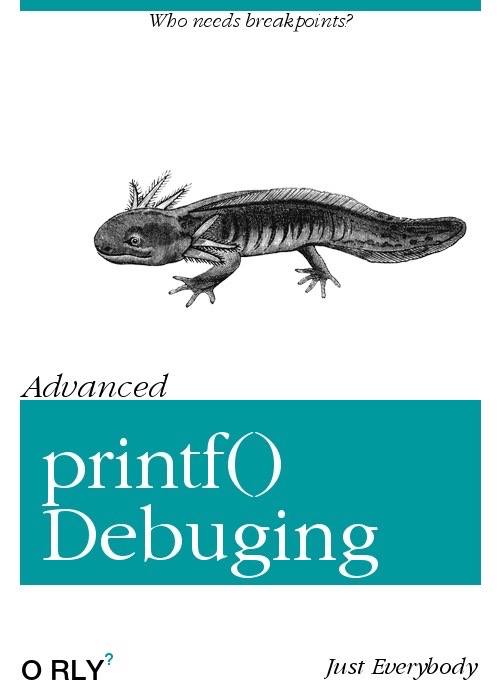
In the vast and varied landscape of Debuglandia, where the quest for bug-free code is both a noble pursuit and an elusive dream, there exists a practice as ancient and revered as the art of coding itself: "printf() Debugging." This technique, a testament to the ingenuity and resourcefulness of developers, has stood the test of time, a beacon of simplicity in the increasingly complex world of software development.
At the heart of this narrative is Taylor, a developer whose mastery of printf() debugging has become the stuff of legend. In a land where breakpoints and sophisticated debugging tools abound, Taylor's preference for this primal form of problem-solving was both a curiosity and a subject of admiration.
"Who needs breakpoints?" became Taylor's rallying cry, a question that echoed through the halls of Debuglandia's coding guilds and online forums. Armed with nothing but a keen eye for code and a strategic placement of printf() statements, Taylor embarked on bug-hunting expeditions that were both efficient and effective, unraveling mysteries that had stumped even the most advanced debugging tools.
The technique was deceptively simple: strategically insert printf() statements throughout the code to output the values of variables, the execution flow, or any piece of information deemed crucial to understanding the beast that lay hidden within the lines of code. Each printf() served as a breadcrumb, leading Taylor closer to the root of the problem, illuminating the path through the dense forest of syntax and logic.
As Taylor's reputation grew, so did the lore of printf() debugging. Stories were told of bugs so elusive they seemed almost spectral, appearing and vanishing without warning or pattern. Yet, time and again, Taylor would vanquish these foes with nothing but the humble printf(), peeling back the layers of complexity to reveal the simple errors that lurked beneath.
But Taylor's approach was not without its critics. Some argued that relying on such a rudimentary tool in the age of advanced debugging software was akin to navigating the ocean in a rowboat when one had access to a ship. Yet, Taylor remained undeterred, their successes a testament to the enduring power of printf() debugging.
The technique, Taylor argued, was not a rejection of modern tools but a complement to them, a way to foster a deeper connection with the code. It was a reminder that, at its heart, debugging was about understanding, about peering into the soul of the software to discern its secrets.
"Who needs breakpoints?" was not a dismissal of technology but an homage to the foundational skills of software development, a nod to the days when coders and their code existed in closer communion, unmediated by layers of abstraction.
And so, in Debuglandia, "printf() Debugging: Who needs breakpoints?" became a legend, a parable of persistence, simplicity, and the timeless wisdom that the most effective solutions are often the most straightforward. Taylor's legacy was a reminder that in the ever-evolving world of software development, sometimes the oldest tools in our arsenal are the most reliable, guiding us through the darkness with a light that, while faint, never fails to illuminate the path to clarity and understanding.